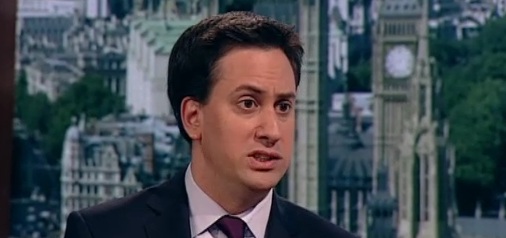Has Ed signed the death-warrant for his leadership?

How ruthless will his MPs be?
There is to be a Clause Four moment after all. Perhaps symbolically, it is not to be over a grand symbol of Labour’s policy but an arcane process for selecting the shadow cabinet. It doesn’t matter though.
In taking on this fight, Miliband is placing his authority on the line and challenging his party and his MPs in just the same way.
One can well understand his reasons for proposing the change. Not only would his gaining the change stamp his authority on the party but the ability of the PLP to impose people Miliband does not want and does not rate into his cabinet hardly fosters a team spirit. The ability to select his own front bench theoretically unties his hands considerably.
In practice it might not make as much difference: the obviously capable and willing would still be included, as would those too dangerous to leave out, both groups whose members should be elected anyway. The effective difference is very much at the margins.
Going back to the original Clause Four debate, Blair put his authority on the line party because he knew it was important to demonstrate to the public that Labour was indeed ‘New’ and not the party of the 1970s and ’80s. He also knew that after 15 years in opposition it was restless to return and willing to pay a price to do so. Similarly, he was riding high in the polls and looked a future prime minister. That gave him more to lose but also more reason to assume he’d win: would conference really throw out someone who looked like a winner in an emotional spasm? No, as it turned out, they wouldn’t (though Labour ended up nationalising the railways and a sizable proportion of the banking sector anyway).
Miliband does not have those advantages Blair did. He is also taking on a different part of the Labour movement. Blair’s prime opponents were the unions; Miliband’s are the MPs. That said, to get it through, he’ll still need union support which has implications for policy or prospects elsewhere.
In doing so, he is really engaging in high stakes politics. MPs are just about the only people who bring down party leaders between elections and he is giving them the means to do so. Were they to refuse to give up a right which it’s easy to defend on democratic grounds (and which they did, shortly before he became leader), it would seriously undermine Miliband, possibly fatally: a refusal would be tantamount to a vote of no confidence by the PLP in him.
It’s rather like Miliband handing his MPs a loaded gun and asking them to shoot themselves – they may prefer to direct their fire elsewhere.
Looking at this question a different way, if a Labour MP, disillusioned with Miliband’s leadership and not foreseeing any great prospect of improvement wanted him out, how would he or she go about getting a best case scenario: a clean, swift removal with his replacement untainted in the process?
It all comes back to the question about ruthlessness. The Conservatives would do it and have done it; the Lib Dems proved themselves in the last parliament up to removing liabilities as leader. Will Labour? One thing’s clear: if they don’t take this chance, they almost certainly won’t take any other before the general election.